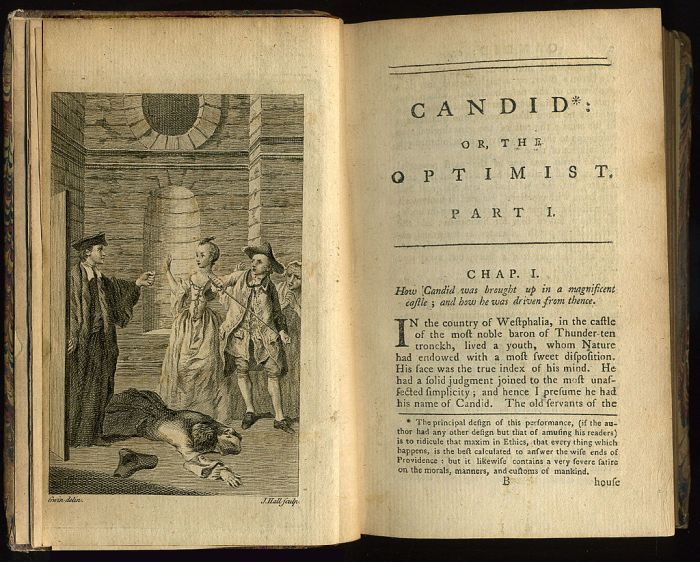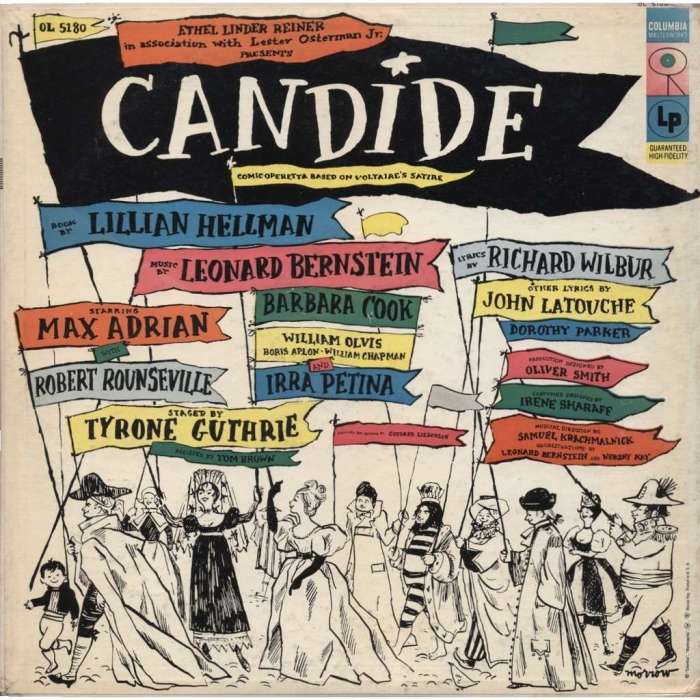Beginning with examples of satire in Candide, the narrative unfolds in a compelling and distinctive manner, drawing readers into a story that promises to be both engaging and uniquely memorable.
Candide, a satirical masterpiece by Voltaire, employs various literary techniques to critique philosophical optimism, religious hypocrisy, and human nature. This exploration will delve into specific instances of satire found within the novel, highlighting Voltaire’s sharp wit and incisive social commentary.
Satire in Candide

Satire is a literary technique used to criticize or ridicule individuals, institutions, or societal norms through humor, irony, or exaggeration. In Voltaire’s Candide, satire plays a central role in exposing the follies and injustices of the Enlightenment era.
Specific Literary Techniques
Voltaire employs various literary techniques to create satire in Candide. These include:
- Exaggeration and Hyperbole:Exaggerating events, characters, or situations to emphasize their absurdity or ridiculousness.
- Irony:Using words or situations to convey a meaning opposite to their literal sense, creating a sense of mockery or criticism.
- Parody:Imitating or mimicking another work or style in a humorous or critical manner.
- Caricature:Exaggerating or distorting the physical or personality traits of characters to highlight their flaws or weaknesses.
Targets of Satire
Candide’s satire targets a wide range of individuals and institutions, including:
- The Church:Voltaire criticizes the hypocrisy, corruption, and superstition within the Catholic Church.
- The Government:He satirizes the incompetence, tyranny, and warmongering of European governments.
- The Nobility:Voltaire mocks the arrogance, ignorance, and excessive wealth of the aristocracy.
- Philosophers:He satirizes the naive optimism and impractical theories of Enlightenment philosophers, particularly those of Leibniz.
- Human Nature:Ultimately, Voltaire satirizes the inherent flaws and follies of human nature, such as greed, vanity, and self-delusion.
Examples of Satire in Candide

Voltaire’s Candide is a masterpiece of satire, employing irony, exaggeration, and humor to criticize various aspects of 18th-century society, particularly philosophical optimism and religious hypocrisy.
Philosophical Optimism
Voltaire satirizes philosophical optimism, which posits that the world is inherently good and that all events serve a divine purpose. Candide’s experiences throughout the novel challenge this notion, exposing the harsh realities and injustices of the world.
- Pangloss’s unwavering optimism: Despite witnessing countless horrors, Pangloss insists that “all is for the best.” His blind adherence to this belief is a mockery of the idea that everything happens for a reason.
- The Lisbon earthquake: This catastrophic event, which kills thousands, shakes Candide’s faith in the goodness of the world. It forces him to question the idea that a benevolent God would allow such suffering.
- Candide’s experiences in the New World: Candide encounters slavery, war, and disease in the New World, shattering his illusions about the superiority of European civilization.
Religious Hypocrisy
Voltaire also targets religious hypocrisy and corruption. The novel exposes the abuses of power within the Church and the hypocrisy of those who claim to follow Christian teachings.
- The Inquisition: Candide is imprisoned and tortured by the Inquisition for simply being a foreigner. This event highlights the Church’s intolerance and its willingness to persecute those who do not conform to its beliefs.
- The Pope and the Grand Inquisitor: These characters are depicted as corrupt and power-hungry. They use religion as a tool to control the masses and justify their own actions.
- The Jesuit missionary: This character is a hypocrite who preaches about the love of God while engaging in questionable activities, such as selling slaves.
The Use of Irony and Sarcasm

Irony and sarcasm are pervasive throughout Candide, serving as potent tools to critique the optimism of the Enlightenment. Voltaire employs these techniques to expose the glaring contradictions and absurdities of society, revealing the gap between the idealized world of Leibniz’s philosophy and the harsh realities of human existence.
Candide’s Name
The irony of Candide’s name is immediately apparent. Candide means “naive” or “innocent,” a stark contrast to the harsh and disillusioning experiences he encounters throughout the novel. This ironic juxtaposition highlights the novel’s central theme: the incompatibility of Pangloss’s optimistic philosophy with the undeniable suffering and evil in the world.
Sarcasm
Voltaire employs sarcasm to convey his contempt for the superficiality and hypocrisy of society. For instance, when Candide encounters the Anabaptist, Jacques, who has lost an eye and a hand in religious wars, he asks Jacques how he can still believe in a benevolent God.
Jacques replies sarcastically, “It is in his service that I have lost an eye and a hand. Is it not his business to restore them to me in the other world?” This sarcastic remark underscores the absurdity of blindly adhering to religious dogma in the face of overwhelming evidence of suffering.
Irony
Irony is another key element of Voltaire’s satire. For example, Candide’s unwavering optimism despite the horrors he witnesses is deeply ironic. When the Lisbon earthquake kills thousands, Candide remains convinced that “all is for the best in this best of all possible worlds.”
This ironic contrast between Candide’s belief and the devastating reality highlights the absurdity of Pangloss’s philosophy.
For instance, Candide’s encounter with the Old Woman in Chapter 19 satirizes the notion of Panglossian optimism. While studying for your AP Biology exam, you might find it helpful to refer to the ap bio unit 1 study guide pdf . Returning to Candide, another example of satire can be seen in Chapter 23, where the characters’ encounter with the Eldorado satirizes the idea of a perfect society.
Satire of Human Nature: Examples Of Satire In Candide

Candideis a sharp satire of human nature, exposing the folly and hypocrisy of individuals and societies. Voltaire uses his characters and situations to criticize the Enlightenment’s optimistic view of human progress, arguing instead that human nature is inherently flawed.
Innocence and Corruption, Examples of satire in candide
Candide’s journey is a metaphor for the corruption of innocence. At the beginning of the novel, Candide is a naive and idealistic young man, believing in the goodness of the world. However, his experiences in the world gradually erode his innocence, revealing the true nature of human society.
Through Candide, Voltaire satirizes the idea that humans are naturally good and that society can be perfected.
Folly and Ignorance
Voltaire also satirizes human folly and ignorance. Many of the characters in Candideare foolish and irrational, driven by greed, pride, and superstition. Voltaire uses these characters to criticize the human tendency to believe in false ideas and to make decisions based on ignorance.
The Search for Meaning
Ultimately, Candideis a satire of the human search for meaning. Candide’s journey is a quest for happiness and fulfillment, but he never finds it. Voltaire suggests that there is no easy answer to the question of life’s meaning and that humans must accept the absurdity of the world.
The Role of Candide as a Satirical Character

Candide’s journey and experiences are a crucial element of Voltaire’s satire in the novel. His transformation from a naive optimist to a weary realist reflects the novel’s satirical message about the flaws of optimism and the harsh realities of life.
Candide as a Symbol of Humanity
Candide’s journey represents the human search for meaning and happiness in a seemingly meaningless and often cruel world. His experiences with war, disease, natural disasters, and social injustice reflect the challenges and suffering that humanity faces.
FAQ Insights
What is the main target of satire in Candide?
Voltaire’s satire primarily targets philosophical optimism, religious hypocrisy, and human nature.
How does Voltaire use irony to create a satirical effect?
Voltaire employs irony by presenting situations and characters in a way that highlights their inherent contradictions and absurdities.
